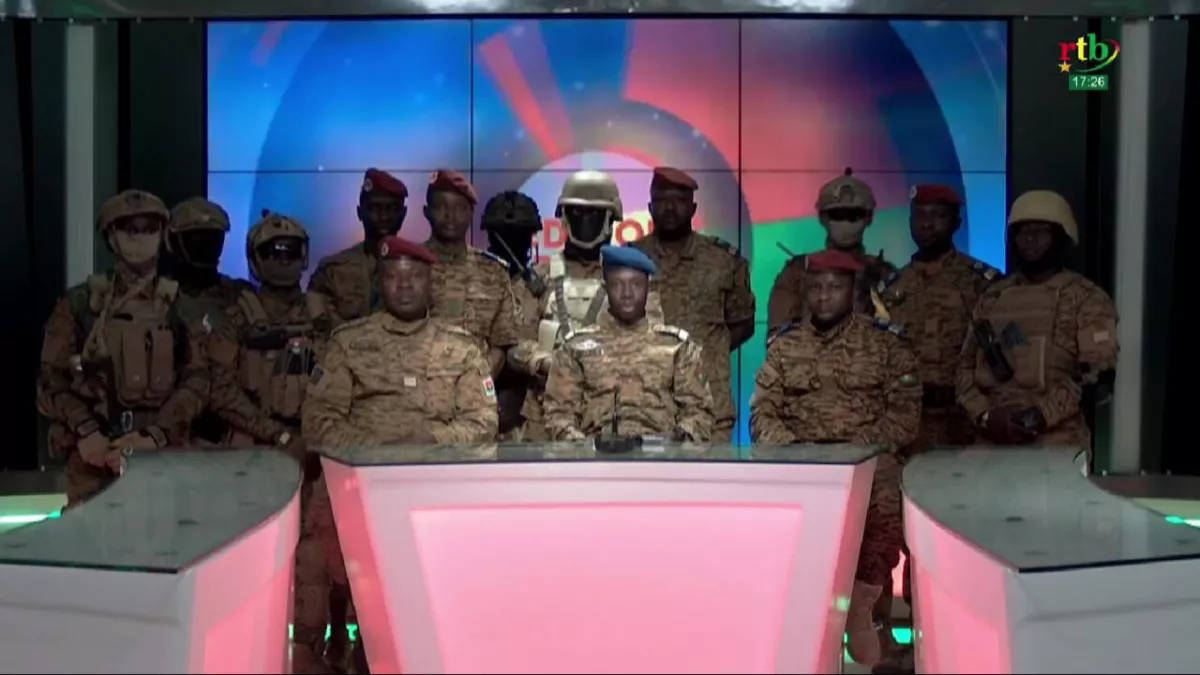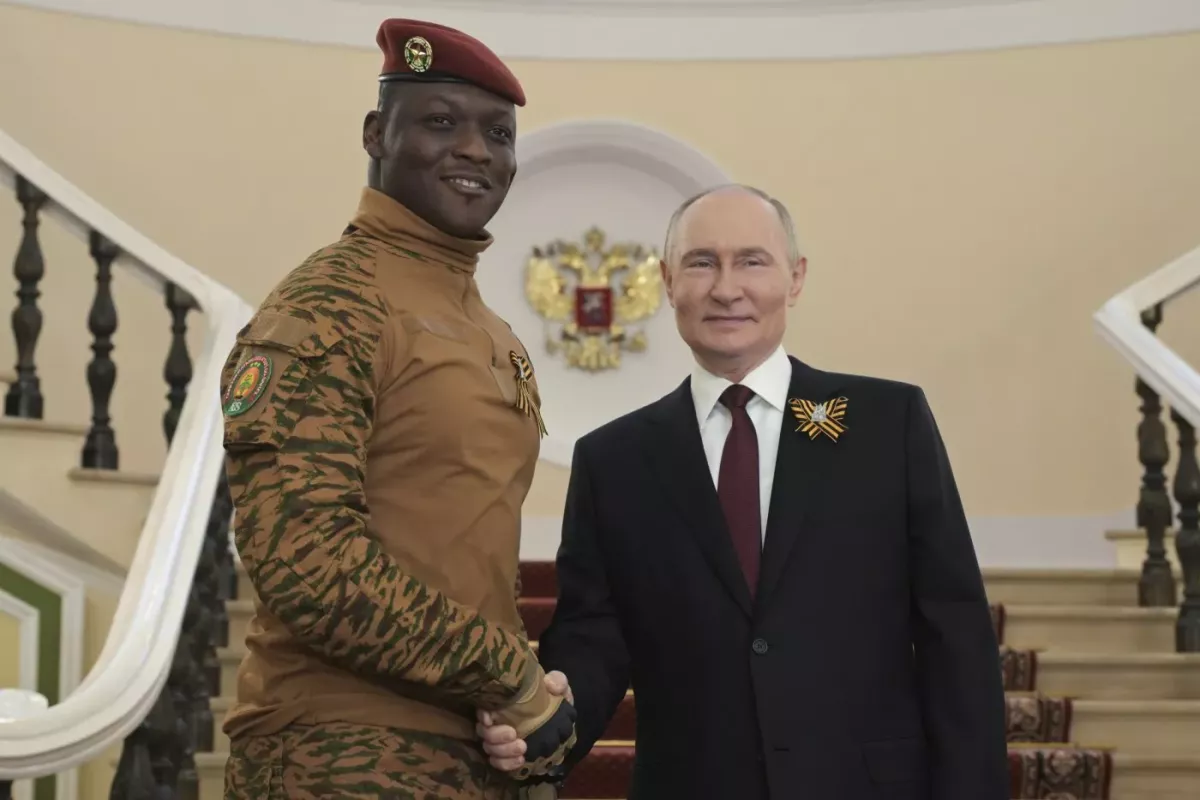How social media helped Burkina Faso's coup leader win hearts across African youth
In 2022, Ibrahim Traoré seized international attention after leading Burkina Faso’s second coup in under a year, ousting the ruling junta with promises to reclaim national sovereignty and reject colonial influence. Days later, he was sworn in as interim president, becoming Africa’s youngest leader. His ascent was driven as much by military action as by a strategic digital presence, with AI-generated content and impassioned speeches positioning the charismatic military man as a pan-African symbol of resistance and reform.
In a region fatigued by foreign intervention and democratic backsliding, Traoré's message has struck a chord with disillusioned youth. Despite increasing violence and authoritarian governance, an article by Newsweek points out that many see him as a defiant figure challenging Western dominance, often blamed for decades of instability and economic hardship.
Traoré’s rise is part of a broader trend in West Africa, where military takeovers have surged amid frustration with governance failures and neocolonial influence. Since 2020, the continent has seen nine successful coups and a comparable number of failed attempts, mostly concentrated in Francophone countries of the so-called “Sahelian coup belt,” where resentment of France’s lingering military presence has run deep. Captain Traoré assumed leadership in September 2022 after deposing Lieutenant Colonel Paul-Henri Damiba—whom he had previously supported in the earlier overthrow of President Roch Marc Kaboré.
Under Traoré, Burkina Faso became a key player in the regional withdrawal from the Economic Community of West African States (ECOWAS). Alongside Mali and Niger, it co-founded the Alliance of Sahel States—a bloc aimed at asserting sovereignty and forming new alliances. Traoré’s focus on economic independence and pan-African solidarity has resonated with those sidelined by global economic systems. Yet his increasingly authoritarian approach has sparked fears over democratic decline and human rights abuses.
Rise to power
Born in Bondokuy in western Burkina Faso, Traoré studied geology at the University of Ouagadougou before enlisting in the military in 2010. He gained frontline combat experience battling jihadist groups in northern Burkina Faso before graduating as a second lieutenant in 2012. Following his promotion to lieutenant in 2014, he served as a peacekeeper with the United Nations Multidimensional Integrated Stabilization Mission in Mali (MINUSMA). After returning from the mission, Traoré joined a specialized counterterrorism unit operating in the country's north. In 2020, at age 32, he was promoted to captain.
In January 2022, Lieutenant Colonel Paul-Henri Damiba led a coup against then-President Roch Marc Kaboré and appointed Traoré as commander of an artillery regiment in the North Central region. However, disillusioned with the junta’s failure to curb insurgent violence, Traoré and a group of junior officers launched another coup. They capitalized on widespread public and military anger following a deadly ambush that killed 11 soldiers and dozens of civilians. In October 2022, Traoré was sworn in as interim president, vowing to restore security and national sovereignty.

Traoré has since championed self-reliance, establishing a state-owned mining company to reduce foreign dominance, launching rural infrastructure projects, distributing farming equipment, and rejecting loans from the IMF and World Bank. His government paid off domestic debt, raised civil servant wages by 50%, and expelled French forces in 2023, framing the move as a break from colonial entanglements. Capitalizing on anti-French sentiment, Traoré portrayed his predecessor Damiba as a pro-French figure, further solidifying his own populist appeal.
Foreign policy pivot
Despite Traoré’s portrayal as a visionary reformer, the long-term political, security, and economic effects of his junta’s rule will likely shape Burkina Faso’s trajectory for years to come. He has reoriented the country’s foreign policy, expelling French troops in 2023 and ending Operation Sabre, signalling a sharp departure from Paris. The reopening of Russia’s embassy and deeper ties with Moscow—including a 2024 visit to meet President Vladimir Putin—highlight a growing eastward alignment. Following France’s departure, Russian mercenaries have reportedly taken on regime protection duties, with 100–300 personnel believed to be in the country. Their limited presence suggests a focus on safeguarding Traoré’s junta rather than counterinsurgency.

Social media rise
Beyond policy, Traoré has cultivated a powerful image online. His leadership is increasingly bolstered by a digital cult of personality, featuring viral videos, AI-enhanced speeches, and carefully curated social media content that casts him as a pan-African hero. In early 2024, an AI-generated deepfake video showing him calling for African unity in multiple languages went viral across TikTok and WhatsApp, inspiring admiration and controversy alike.
Despite these efforts, violence has worsened: more than 60% of the country is outside government control, and over 2 million people have been displaced. Allegations of abuse by security forces have fuelled demands for international accountability. Violence has expanded into nearly all regions, including along Burkina Faso’s southern border, likely underreported due to limited access.
Since Traoré’s rise, the junta claims to have thwarted multiple coup attempts—one in September 2024 came just after a massacre near Barsalogho, where extremists killed hundreds of civilians. Civilian deaths from Islamist militant groups surged from 721 in 2022 to 1,151 in 2024, with military-linked violence also rising.
The escalating conflict paints a grim picture. The military has dominated Burkina Faso’s political life for most of its post-independence history—around 45 of the last 65 years. Meanwhile, the Islamist insurgency continues to engulf the countryside. Some estimates suggest as many as 3 million people have been displaced, more than 10% of the total population. Conflict has disrupted education as well, with over a million students potentially out of school.
As Burkina Faso navigates this complex landscape of reform and resistance, the world watches closely—grappling with what Traoré’s leadership means for the region’s fragile future.
By Nazrin Sadigova








